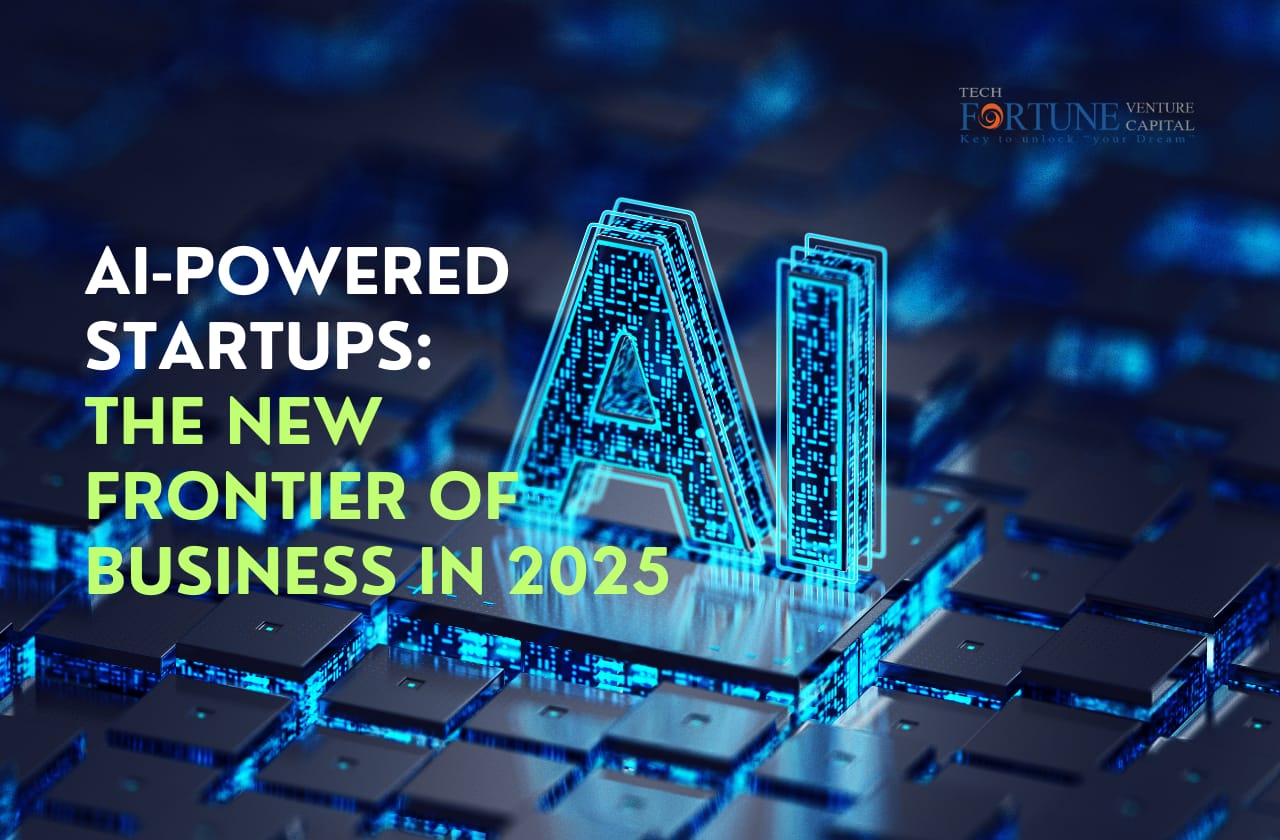“AI-Powered Startups: The New Frontier of Business in 2025”
Artificial Intelligence (AI) has moved from hype to habit. In 2025, AI is not just an enhancement—it’s the foundation of how today’s most successful startups are built. This shift marks a new frontier where small, agile teams with big ideas are outpacing large incumbents by embedding intelligence directly into their products, workflows, and business models.
From idea to scale, AI is changing what it means to innovate. And for early-stage founders, it’s offering a once-in-a-generation opportunity to create impact through data, automation, and learning systems.
Startups Are Being Built Differently
In the past, startups followed a predictable model: build an MVP, test the market, scale with capital, and refine the product along the way. In 2025, that model is evolving—intelligent design from day one is becoming the new norm.
Startups are now using machine learning to create smarter products that improve over time. Whether it’s an app that adapts to user behavior, a tool that automates customer interactions, or a platform that predicts demand, intelligence is being baked into every layer.
What’s changed?
- Access to open-source models and AI APIs is broader than ever.
- Cloud infrastructure is more affordable and scalable.
- No-code and low-code platforms let non-technical founders integrate AI effortlessly.
- AI literacy is rising among founders, designers, and operators alike.
Together, these shifts are redefining startup strategy, opening the door to leaner, faster, and far more adaptive businesses.
What Makes an AI-Native Startup
AI-native startups differ from others in one crucial way: they aren’t adding AI—they’re built around it. Their core assumptions are shaped by what intelligence makes possible.
These startups typically exhibit five key traits:
- Data-driven architecture – Models are trained on proprietary, structured data streams.
- Automated operations – Internal workflows leverage AI to reduce human input and increase efficiency.
- Personalized experiences – End-user interactions are tailored using behavior prediction and feedback loops.
- Feedback-based improvement – The product learns and evolves over time through real usage.
- Ethical AI design – Transparency, fairness, and compliance are embedded into the system.
In a competitive landscape, these traits make AI-native startups stand out. They aren’t just faster; they’re more responsive, more efficient, and more scalable.
Generative AI Is Becoming Infrastructure
In 2023 and 2024, the world saw a surge in interest in generative AI—tools that create content, write code, and simulate interaction. But by 2025, generative AI has gone mainstream and become part of the backbone of many startup operations.
It’s no longer about flashy demos. Today’s generative tools power real business use cases:
- Writing customer emails and product documentation
- Creating UI mockups and code suggestions
- Automating onboarding flows and knowledge management
- Synthesizing sales calls or user interviews into insights
Startups that embed these tools into their platforms gain a distinct productivity advantage, reducing time to delivery and increasing customer satisfaction.
The Role of Data Infrastructure
AI is only as strong as the data that powers it.
Startups that understand this have made data engineering a strategic priority. They focus on building clean, secure, and continuous pipelines of information that can train and refine their models.
Three practices stand out:
- Owning unique data: Startups that collect or generate proprietary data have a natural moat.
- Structuring early: It’s easier to scale when the data schema is designed with intelligence in mind.
- Learning from feedback: Continuous improvement comes from real-world use, not just training sets.
This infrastructure isn’t glamorous—but it’s essential. It ensures that AI systems don’t degrade over time, and that their value grows with every interaction.
Trust and Responsibility in AI
As AI becomes more integrated into daily life, responsibility is no longer optional. In 2025, users, regulators, and investors all expect startups to address questions like:
- How are decisions being made?
- Is there bias in the output?
- Can users understand and contest predictions?
Startups that embed explainability, fairness, and compliance into their systems are better positioned for long-term success. These are not just technical requirements—they’re signals of a startup’s maturity and values.
Responsible AI is a business advantage. It builds user trust, improves model performance, and reduces regulatory risk.
Challenges Facing AI-Powered Startups
Despite the exciting opportunities, AI-native startups face real obstacles:
- Rising compute costs can overwhelm early-stage budgets.
- Model complexity makes debugging and iteration harder.
- Talent gaps in AI and data science persist.
- Customer education remains necessary in traditional sectors.
But the most successful teams are overcoming these hurdles through thoughtful design, smart partnerships, and community-driven growth.
They’re building with the long game in mind.
Why Small Teams Are Winning
Perhaps the most striking change in 2025 is how much a small team can accomplish. With cloud-native tools, pre-trained models, and automation, lean startups can deploy products with capabilities that once required dozens of engineers.
This enables:
- Two-person teams to launch enterprise-grade products
- Solo founders to scale intelligent tools to thousands of users
- Distributed teams to collaborate seamlessly on AI-powered platforms
The barrier to entry has dropped—but so has the patience for shallow products. Startups must move fast, but they must also deliver depth. AI is allowing them to do both.
The New Standard of Startup Excellence
In this new frontier, startup excellence means more than rapid growth or slick interfaces. It means:
- Building systems that learn and adapt
- Designing infrastructure that scales intelligently
- Earning trust through responsible development
- Leveraging data as a living asset
AI-powered startups aren’t just innovating—they’re reshaping what it means to operate in a digital-first, intelligence-driven world.
How Techfortune Venture Capital Supports This Future
At Techfortune Venture Capital, we back visionary founders who are building scalable, AI-powered startups from the ground up. Our approach supports early-stage companies with:
- Strategic capital to test and scale
- Operational and technical guidance
- Access to expert networks across AI and engineering
- Mentorship focused on long-term, responsible growth
While we support a broad range of tech-led startups, particularly those driving innovation in the insurance, telecom, and banking sectors—where intelligent systems and data-led automation are reshaping the future.
Let’s build the future together.
FAQ:
AI-native startups are built with intelligence at the core, using machine learning, data pipelines, and automation to drive decision-making, scale, and product innovation.
A strong data strategy enables cleaner models, smarter decisions, and long-term defensibility—giving startups an edge in performance, personalization, and reliability.
Common challenges include compute costs, model transparency, regulatory pressures, and hiring skilled AI talent—requiring discipline, smart infrastructure, and ethical development from the ground up.
Techfortune seeks technically strong teams, scalable architectures, responsible AI practices, and products that solve complex problems using intelligence, automation, and robust data engineering.

